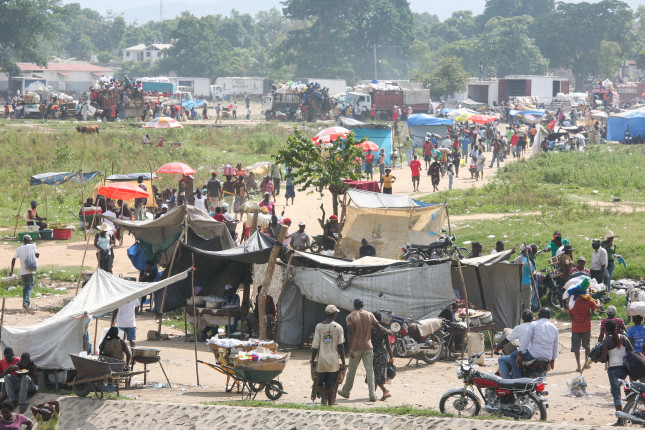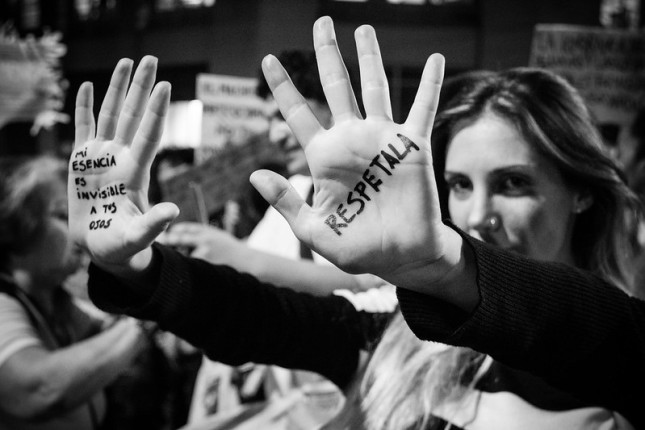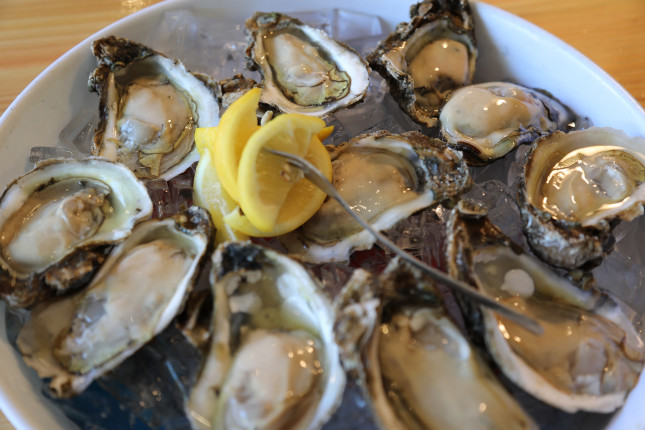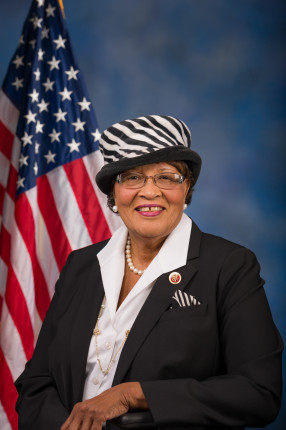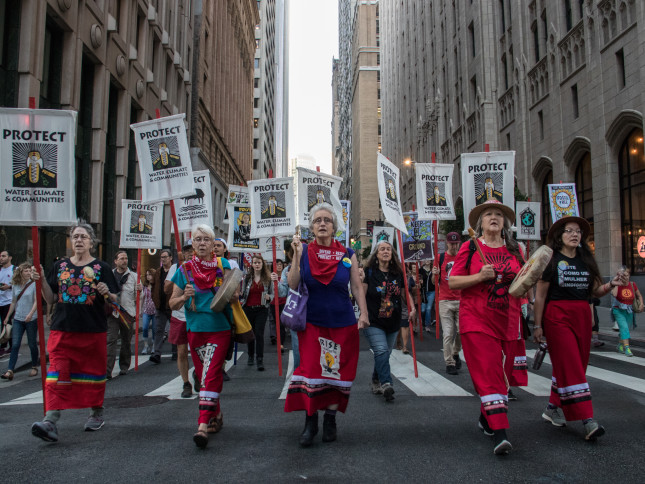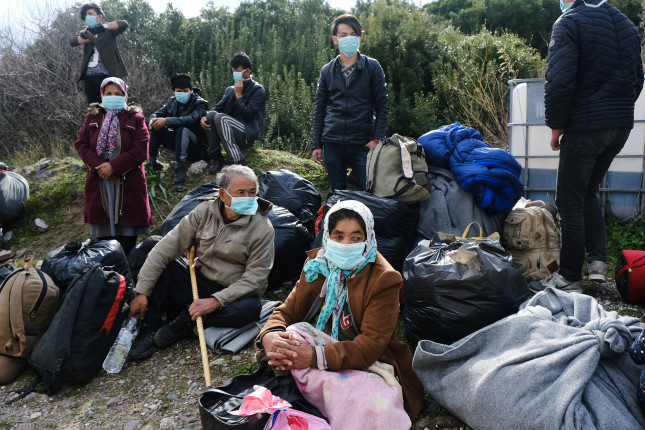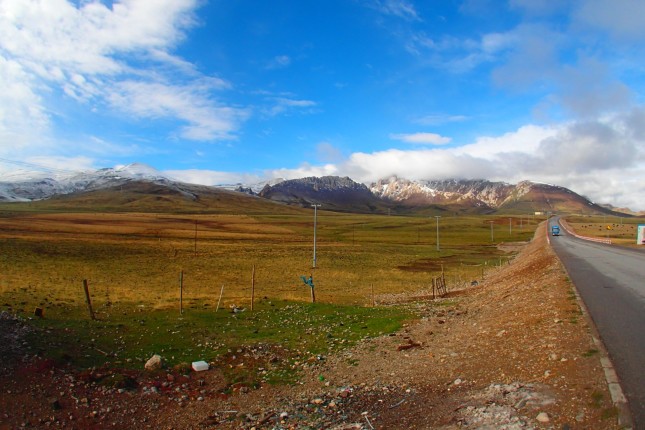-
China’s Post-Pandemic Water Woes
›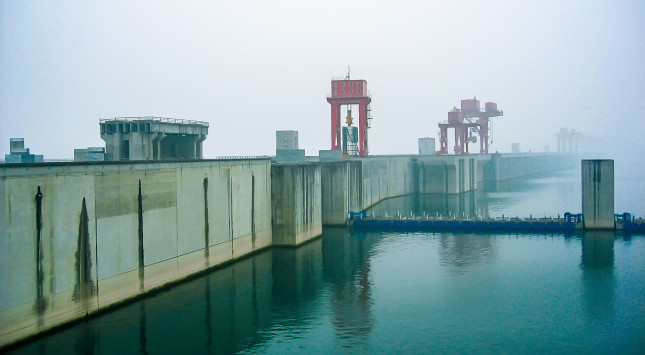
Few places have suffered more from the COVID-19 pandemic than southern China, the region where the novel coronavirus was first detected in the city of Wuhan. But it turned out that the pandemic is not the only calamity to befall south China this year. The region has been inundated by heavy rainfall since late May, creating a risk of catastrophic flooding. While southern China typically sees heavy rainfall in the summer months, state media reported that this year’s precipitation has been roughly 20 percent higher than normal. Other outlets report that flooding has affected over 30 million people across dozens of provinces and resulted in over 120 deaths.
-
The Top 5 Posts of June 2020
›
The same factors that make human trafficking victims vulnerable to trafficking can also exclude them from the very initiatives meant to protect them. In the case of the Dominican Republic, Haitian migrants—black, poor, and mostly men with an irregular immigration status—are more often viewed as criminals than victims of trafficking. In our top post this month, Jean-Pierre Murray explores the case of Haitian migrants, the risks they face, and why they’ve been overlooked.
-
Accessing Justice: Femicide and the Rule of Law in Latin America
›Dot-Mom // From the Wilson Center // July 17, 2020 // By Annelise Gilbert, Beatriz García Nice, Olivia Soledad & Anya Prusa
“The pandemic is just making visible a reality that has been going on for decades,” said Claudia Calvin, Founder of Mujeres Construyendo (Women Building) and a member of Nosotras Tenemos Otros Datos (We Have Other Data). She spoke at a recent Wilson Center event on femicide and the rule of law in Latin America. The panelists discussed the longstanding roots of this issue and new barriers to protecting women and preventing violence during the pandemic in the launch event for a project examining gender-based violence in Latin America, co-hosted by the Brazil Institute, Latin America Program, Mexico Institute, and Maternal Health Initiative. “Violence against women and femicides are not new,” Calvin said. But what is new is the fact that the media and civil society are bringing this topic to our attention, she said.
-
The World Is Your Oyster and Your Plastic Pollution Is Getting Into It
›
Picture this: It’s a warm, spring day in May 2021. You are at a local seafood restaurant overlooking the Chesapeake Bay and your order of raw oysters arrives delicately placed on a layer of ice. Your waiter reviews the type of oysters you ordered. He says, “Running clockwise, you have Pemaquid, Blue Point, and PEI.” Before the waiter steps away, he asks, “Would you like extra microplastics added to your oysters?” Dumbfounded, you reply, “Extra?”
This Twilight Zone-like scenario is not totally fictional. Oysters are a keystone species in the environment, meaning they are the backbone of ecosystems. They are heroes in a small shell. In addition to where they sit on the food chain, oysters can filter up to 50 gallons of water per day, cleaning the surrounding water of chemicals and pollutants. However, this means they inevitably suck up more than they bargained for. Scientists have discovered that oysters contain microplastics, plastic pieces that measure less than 5 mm in size in one dimension (similar to the size of a sesame seed). Oysters suck in microplastics and, sometimes, they never pass them out.
-
Women, Race, and COVID-19: A Conversation with Representative Alma Adams
›
“The pandemic has shown us in the starkest terms how wide the gaps are in health outcomes between Black and White America and between men and women,” said Representative Alma Adams (D-NC-12) at a recent Wilson Center event on women, race, and COVID-19 in the United States. “COVID-19 has revealed what the Black community and communities of color have known for a long time, health outcomes are further compounded by systemic and structural racism,” said Rep. Alma Adams. And COVID-19 has exposed what women have known for a long time. Gender inequality exists, it threatens economic empowerment, and it increases vulnerabilities.
-
Divesting Won’t be Enough to Achieve Climate Justice
›
A quiet disruption to the established financial order is underway: Around the world, institutions are pulling their investments out of fossil fuels. Climate activists campaigning for divestment suggest that such economic rearrangements might keep oil, gas, and coal in the ground, curbing carbon emissions. In parallel, some high-profile advocates call for reinvestment in renewable energy. But can the financial sector really drive the structural changes needed to address climate change—and, more fundamentally, climate justice?
-
Refugees and COVID-19: A Closer Look at the Syrian and Rohingya Crises
›
“We all know that while no one is immune from the Covid-19 virus—and people of all types have caught the virus and died from it—it is the world’s most vulnerable communities that have suffered disproportionately from the pandemic,” said Michael Kugelman, Deputy Director and Senior Associate for the Wilson Center’s Asia Program. He spoke at a recent Wilson Center event on the impact of the COVID-19 pandemic on refugee communities. As of 2019, 1 percent of humanity was displaced. That’s more than 79.5 million people. The COVID-19 pandemic has exacerbated the vulnerabilities of these people. “The health pandemic is fostering a new pandemic of poverty,” said Matthew Reynolds, Regional Representative for the U.S. and the Caribbean at the United Nations High Commissioner for Refugees (UNHCR).
-
A Peopled Wilderness: Combining the Best of Chinese Tradition and U.S. Conservation
›
In the Western tradition, the term “wilderness” evokes an image of an idyllic and pristine landscape filled with lush plant life and an abundance of animal species. According to Vance Martin, president of the WILD Foundation, this conception of wilderness, even in conservation areas, leaves out a critical species: humans.
 A Publication of the Stimson Center.
A Publication of the Stimson Center.

